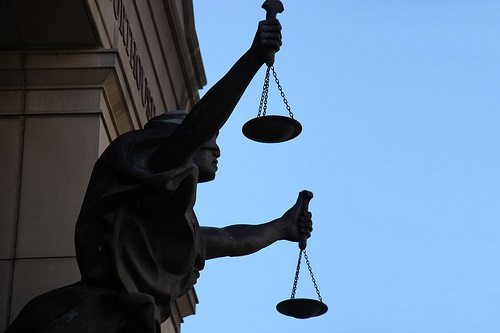
April 11, 2017; The American Prospect
As NPQ reported in a March feature article, among the agencies targeted for elimination in the “America First” budget blueprint produced by the White House’s Office of Management and Budget (OMB) is the Legal Services Corporation (LSC). An array of lawyers and legal organizations are lining up to support and advocate for LSC’s continued operation despite the Trump administration’s “skinny budget” plans to shutter the organization as part of $54 billion in program cuts to fund a corresponding increase in military spending.
Legal Services Corporation, established with presidential support during the Nixon administration, is funded by the federal government but run as an independent 501(c)(3) nonprofit organization. According to its GuideStar page, “LSC distributes more than 90 percent of its total funding to 134 independent nonprofit legal aid programs with nearly 800 offices. LSC funds programs in every US state and territory.” LSC’s 2015 IRS Form 990 reports a budget of approximately $350 million supporting three main programs: basic fiend grants, technology initiative grants, and the pro bono innovation fund.
There has always been opposition to LSC, primarily from Republicans concerned about LSC’s frequent practices of using its federal revenue to support lawsuits against the government itself on behalf of indigent clients. Efforts to close LSC in the 1980s during the Reagan administration, and again in the 1990s under House Speaker Newt Gingrich were unsuccessful, though they did result in budget cuts and restrictions on how federal funds could be used by LSC. For example, LSC is prohibited from filing litigation based on class action lawsuits.
Sign up for our free newsletters
Subscribe to NPQ's newsletters to have our top stories delivered directly to your inbox.
By signing up, you agree to our privacy policy and terms of use, and to receive messages from NPQ and our partners.
Not surprisingly, a coalition of legal groups is assembling to advocate for the LSC. In an official statement, the American Bar Association’s president has expressed “outrage” and reminded lawmakers of LSC’s benefits.
Some of the worthy services the LSC provides include securing housing for veterans, protecting seniors from scams, delivering legal services to rural areas, protecting victims of domestic abuse and helping disaster survivors. Their offices are in every congressional district and they help almost 1.9 million people annually.
More than 30 cost-benefit studies all show that legal aid delivers far more in benefits than it costs. If veterans become homeless, or disaster victims cannot rebuild, their costs to society are significantly more.
Similar statements and letters have been written by the Conference of Chief Justices and Conference of State Court Administrators. More than 160 law school deans and 150 law firms have expressed their support for LSC in letters to members of Congress and OMB. Law firms cite the partnerships between LSC attorneys and private law firm attorneys to coordinate pro bono legal services for poor clients. Without LSC’s participation, the law firms argue, the for-profit law firms’ pro bono services would be harmed.
There is both good news and bad news in the current situation. A coalition of 148 U.S. House members, including 11 Republicans, have signed a joint letter encouraging continued funding for LSC in the upcoming fiscal year. However, continued funding at current levels still means that half of people seeking LSC’s services are likely to be denied due to lack of resources, based on a 2009 study by LSC. A “compromise” that allows LSC to survive while making cuts from its current budget levels will only increase the number of people unable to access LSC support. LSC would like to see its budget increased from about $385 million to at least $500 million, which seems at least as unlikely politically as it is needed programmatically.—Michael Wyland










